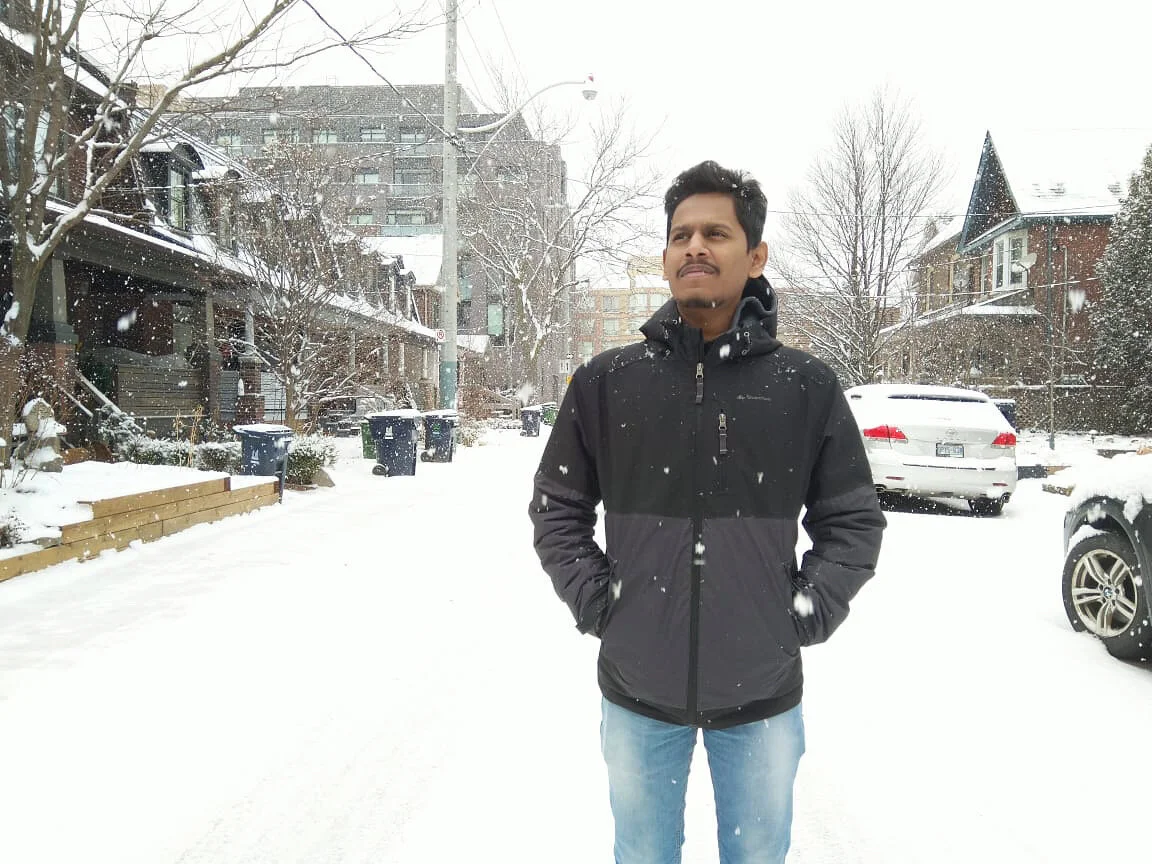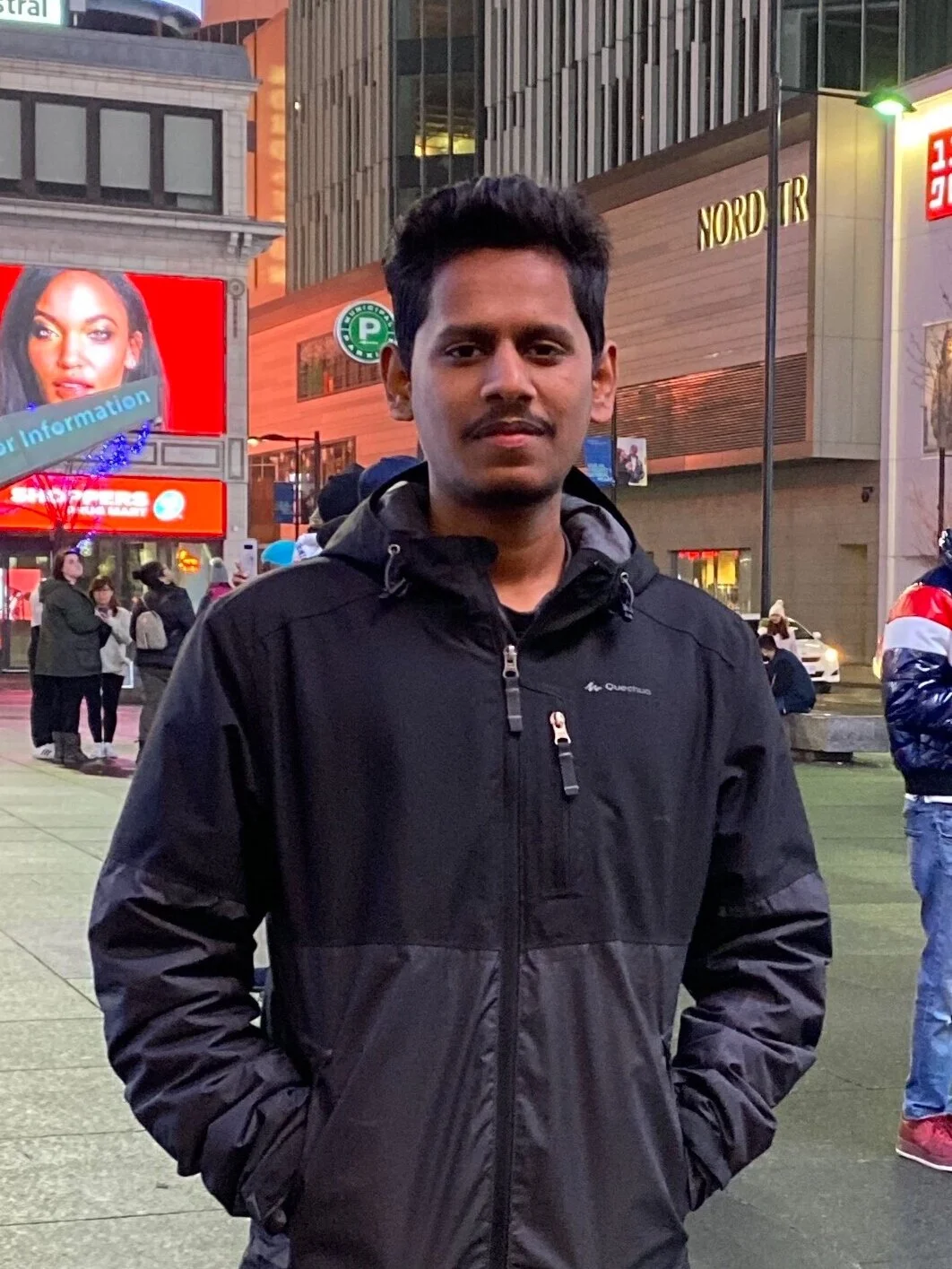
Sai Smaran
Sai Smaran -2019
What education did you have before you took the Visual Effects for Film and Television course?
Sai Smaran
Compositor
Before VFT I completed my Bachelors in Visual Communication in SRM Arts and Science college in Chennai, India. I would say even though that course was not much into visual effects but it did guide me through on what kind of a career I wanted to go in.
To make it simple that course was like a beginners tutorial on Visual effects and really didn't dive deep into it. It was broad with other subjects as well like Media Journalism, Film making, Photography and Traditional Arts. I also had some knowledge of basic 3DS Max and Zbrush during that course.
So once I got out of that college I got really excited and started looking for Jobs like Modeling, Character artists and stuff. At that time I honestly did not know that these roles would need people with a lot of production experience and juniors or freshers like me can very rarely get into big studios like MPC India or Ubisoft. After that I got tired and started working as a Full time UI Designer at a pretty cool Creative agency.
After a whole year working there I then wanted to go back and give a second try. I then realized that i needed to have some kind of professional experience if I wanted to go into VFX and thats when I came across Seneca's VFT Program.
Tell us a bit about your experience at the college.
Seneca was one of the best choices i made in my educational/professional career. VFT was not like those other courses where they teach you some old outdated software. Seneca's Way of teaching and their organized curriculum really makes it easier and gets you on board pretty quickly. To be honest to think that the people who worked in Big budget Hollywood fan favourite Movies and TV shows (Game of thrones, Mandalorian, Amazing Spiderman, The Boys, Vikings, Etc) are standing right there and is teaching you the ways and wonders of VFX is just truly a fanboy moment.
I was so hyped to learn all the fascinating real world and modern applications of VFX from very department individual of the pipeline. I’m still using all the resources given by the faculties till today at my work place. With all the high end Softwares like Nuke, Houdini, Maya, Etc being up to date with the latest releases, you really get the most out of these softwares in these 8 months. Its not just that the faculties help you out only in the technical VFX stuff but also give amazing guidance on how to nail a Job interview at a studio or enlighten you with what studios really want from Freshers out of this course.
How do you use the education you got at Seneca in your job today?
When it comes to real world applications, Seneca prepares you like a fully loaded Shawarma with the all the right ingredients. The program makes sure you are all set on what ever specialty you pick in the industry. As a compositor I would say Joe Raasch and Cameron Kerr went through each and every corner on how a professional comp artist in the industry would deal with shots ranging from various different levels of complexity. Their methods and workflows are not just like you need to blindly follow but you understand why they go through each nodes and how to handle different shot scenarios. I reference their works or methods all the time at work and I’m glad they provide you with all the resources like Video Tutorials and Addon's to make your life simpler.
This is Sai’s demo reel when he graduated from the program in 2019
What advice would you give potential students who are thinking of taking the course?
Not gonna lie, I’m really not good at giving advice but I would say just this: At the start of the course you might feel like you're completely bombarded with all these Softwares and Technical stuff and it might be scary to pick and decide what you might be good at. Be chilled and just go through the first 3 weeks of the course, I promise you'll have a basic idea of what all these are and this is not some witchcraft wizardry. It seems like you are lost in the initial stage and so are all the other students.
I would say just collaborate as much as you can with the students and teachers. You would instantly find your sweet spot in the pipeline and just go for it. You might feel tricked and bamboozled at first but each and every class makes sense as you learn more and more. The basic are the key here and they stick with you through out the 8 Months. Don’t feel pressured that YOU HAVE TO LEARN ALL THESE SOFTWARES. Like no, pick the one thing you feel most connected or that one stuff you like to do most if it be Explosions or Space explorations and ask "Hey how would you do that" that would kickstart you into the unknown. And oh the Tim hortons in our building closes by 4 in summer.
(Written in 2020)
